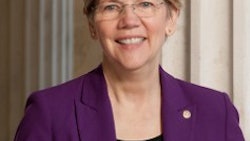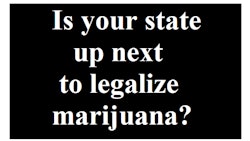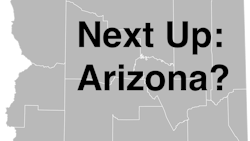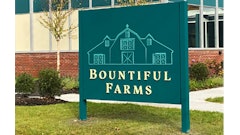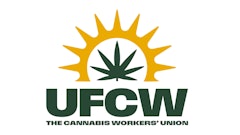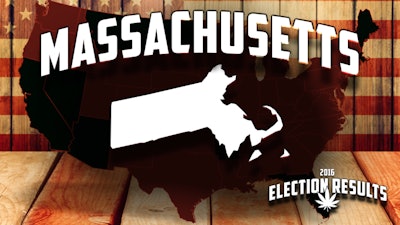
Massachusetts voted to pass Question 4, which creates a recreational marijuana market in the state four years after residents voted to allow medical marijuana. The measure passed 53-46, according to the Boston Globe.
“The initiative for adult use cannabis in Massachusetts is a strong indicator of what the trajectory will be for all of New England,” says Rob Hunt, president of Teewinot Life Science, a synthetic cannabinoid producer. “Every state in the Northeast has already enacted a successful well-regulated medicinal cannabis law without any of the negative consequences some were fearing. Now each of the neighboring states will have the opportunity to evaluate if the same positive community impact comes from adult use. If they are satisfied with the result, adult use will swiftly spread throughout the region.”
According to the website of Yes on 4 (the campaign behind recreational legalization and regulation for adults 21 and older), the initiative creates a Cannabis Advisory Board and a Cannabis Control Commission to regulate the recreational use of cannabis similar to alcohol for adults older than 21. It will require marijuana product testing and packaging and labeling standards, and allow cities to opt-out of allowing recreational marijuana sales. The initiative creates a 3.75 percent excise tax that is collected on top of the 6.25 percent sales tax, and gives cities the ability to add additional tax up to 2 percent.
It allows up to six plants in home cultivation for personal use, and up to 10 ounces of marijuana to be kept at home, though public consumption is not allowed. Also, any Massachusetts workplace may keep its current rules regarding drug testing and usage.
Fees for applications for marijuana-based businesses could be relative to business volume according to the initiative text, but will not exceed: $3,000 for an initial application; $15,000 for a retail marijuana store license; $15,000 for a marijuana product manufacturer license; $15,000 for a marijuana cultivator license and $10,000 for a marijuana testing facility. The Cannabis Advisory Board will be responsible for licensing.
The ballot issue was highly contested by Massachusetts lawmakers and Yes on 4. In March, a special state Senate committee released a 118-page report including recommendations that should the bill pass, lawmakers should work to curtail the program’s allowance of home grows, as well as raise taxes on marijuana, according to a Boston Globe article.
Yes on 4 released a rebuttal to the special committee report in October, authored by national law firm Vicente Sederberg LLC, which claimed the report ignored Massachusetts Department of Public Health statistics that marijuana use by high schoolers had fallen since medical legalization, according to the Herald News. It also pointed to 2015 Colorado statistics that showed $103.2 million in marijuana revenue covering, by far, its $8.6 million in expenditures for the program.
"With regard to the 'serious concerns' identified in the Report that this rebuttal does not address, it is important to remember that the Question 4 ballot initiative specifically contemplated such concerns and provided the Cannabis Control Commission with authority to consider the recommendations of the expert members of the Cannabis Advisory Board and enact detailed regulations to fully address any and all concerns,” they say in the rebuttal’s introduction.
State Governor Charlie Baker, Attorney General Maura Healey and Boston Mayor Martin J. Walsh have also all come out against the measure, going so far as to write an opinion column in the Boston Globe. In August, 119 members of the state legislature signed a letter against Question 4, collected by the Campaign for a Safe and Healthy Massachusetts, according to the Lowell Sun. And in September, Lt. Gov. Karyn Polito said in remarks to the Local Government Advisory Commission that the state would have to cut funding for schools and local aid to support the program if Question 4 passed, according to Boston Magazine.
Despite the heavy media pressure, polls leading up to election day showed a widening race, with a September WBUR poll showing it ahead 50-45 and an October Western New England University Polling Institute poll expanding that lead to 62-33.
“The initiative for adult use cannabis in Massachusetts is a strong indicator of what the trajectory will be for all of New England,” says Rob Hunt, president of Teewinot Life Science, a synthetic cannabinoid producer. “Every state in the Northeast has already enacted a successful well-regulated medicinal cannabis law without any of the negative consequences some were fearing. Now each of the neighboring states will have the opportunity to evaluate if the same positive community impact comes from adult use. If they are satisfied with the result, adult use will swiftly spread throughout the region.”
According to the website of Yes on 4 (the campaign behind recreational legalization and regulation for adults 21 and older), the initiative creates a Cannabis Advisory Board and a Cannabis Control Commission to regulate the recreational use of cannabis similar to alcohol for adults older than 21. It will require marijuana product testing and packaging and labeling standards, and allow cities to opt-out of allowing recreational marijuana sales. The initiative creates a 3.75 percent excise tax that is collected on top of the 6.25 percent sales tax, and gives cities the ability to add additional tax up to 2 percent.
It allows up to six plants in home cultivation for personal use, and up to 10 ounces of marijuana to be kept at home, though public consumption is not allowed. Also, any Massachusetts workplace may keep its current rules regarding drug testing and usage.
Fees for applications for marijuana-based businesses could be relative to business volume according to the initiative text, but will not exceed: $3,000 for an initial application; $15,000 for a retail marijuana store license; $15,000 for a marijuana product manufacturer license; $15,000 for a marijuana cultivator license and $10,000 for a marijuana testing facility. The Cannabis Advisory Board will be responsible for licensing.
The ballot issue was highly contested by Massachusetts lawmakers and Yes on 4. In March, a special state Senate committee released a 118-page report including recommendations that should the bill pass, lawmakers should work to curtail the program’s allowance of home grows, as well as raise taxes on marijuana, according to a Boston Globe article.
Yes on 4 released a rebuttal to the special committee report in October, authored by national law firm Vicente Sederberg LLC, which claimed the report ignored Massachusetts Department of Public Health statistics that marijuana use by high schoolers had fallen since medical legalization, according to the Herald News. It also pointed to 2015 Colorado statistics that showed $103.2 million in marijuana revenue covering, by far, its $8.6 million in expenditures for the program.
"With regard to the 'serious concerns' identified in the Report that this rebuttal does not address, it is important to remember that the Question 4 ballot initiative specifically contemplated such concerns and provided the Cannabis Control Commission with authority to consider the recommendations of the expert members of the Cannabis Advisory Board and enact detailed regulations to fully address any and all concerns,” they say in the rebuttal’s introduction.
State Governor Charlie Baker, Attorney General Maura Healey and Boston Mayor Martin J. Walsh have also all come out against the measure, going so far as to write an opinion column in the Boston Globe. In August, 119 members of the state legislature signed a letter against Question 4, collected by the Campaign for a Safe and Healthy Massachusetts, according to the Lowell Sun. And in September, Lt. Gov. Karyn Polito said in remarks to the Local Government Advisory Commission that the state would have to cut funding for schools and local aid to support the program if Question 4 passed, according to Boston Magazine.
Despite the heavy media pressure, polls leading up to election day showed a widening race, with a September WBUR poll showing it ahead 50-45 and an October Western New England University Polling Institute poll expanding that lead to 62-33.








